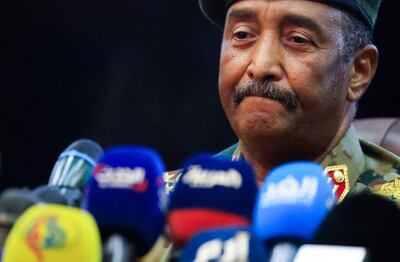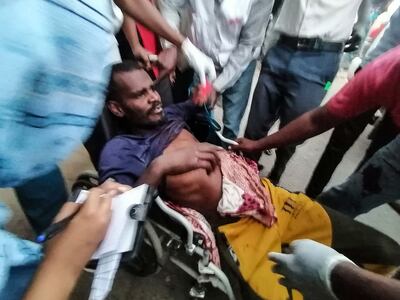Seemingly unfazed by live gunfire from security forces on Saturday, Sudan’s pro-democracy movement is calling for another day of rallies against the October 25 military takeover which ousted a transitional democratic government.
Protesters are calling for mass rallies on Wednesday, following the killing of six demonstrators and the wounding of scores by security forces on Saturday, when tens of thousands took to the streets to protest against the coup, braving live rounds, rubber bullets and teargas.
A medics union linked to the pro-democracy movement, the Central Association of Sudanese Doctors, said four of the six killed suffered gunshot wounds, one suffocated from teargas and the sixth was hit by a tear-gas canister.
The latest deaths took to at least 21 the number of protesters killed since the coup. About 300 have been wounded, not counting the scores injured on Saturday for whom no specific figure has been released.

News of another day of anti-coup rallies came as speculation intensified that army chief and coup leader Gen Abdel Fattah Al Burhan will soon name a new prime minister, replacing career UN economist Abdalla Hamdok whom he dismissed on October 25 and placed under house arrest.
Local media reports have floated the name of academic and legal expert Hannoud Abya Kedov as a possible candidate to head the next government. The British-educated Mr Kedov, 77, specialises in tribal laws, land ownership and environmental issues. He is from the Nuba Mountains area in western Sudan.
Participants in Saturday’s rallies have meanwhile painted a picture of security forces reacting swiftly and heavy-handedly to any sign of large gatherings, firing teargas at protesters barely minutes after they show up at publicly designated meeting points. They also spoke of intense gunfire, aiming primarily at protesters’ legs and of security men chasing protesters down side streets.
Sudanese police claimed that Saturday’s demonstrations started peacefully but “quickly got off track,” according to state TV. They said that many police stations were attacked by protesters but denied using firearms against demonstrators. State TV did not air any evidence of attacks on police stations.
UN appeal
The bloodshed came despite pleas from UN Envoy to Sudan Volker Perthes for authorities to exercise restraint and to respect the right to peaceful assembly.
The heavy-handed tactics appeared to work. The number of protesters on Saturday paled in comparison to the hundreds of thousands who took to the streets on October 30 to denounce the coup in the largest rallies since the takeover.

The latest wave of protests took on added significance despite the relatively low number of participants, coming two days after Gen Al Burhan appointed himself the country’s de facto leader at the head of a new, military-civilian transitional council.
The move consolidated Gen Al Burhan’s grip on power, but also torpedoed chances of a quick resolution of the country’s deepening political crisis.
The new council, expected to hold its first session later on Sunday, excludes representatives of the Forces of Freedom and Change, the main pro-democracy umbrella that had served as the power base of the civilian-led government dismissed by Gen Al Burhan.
The FFC, aided by neighbourhood resistance committees, was behind months of street protests that forced the military to oust dictator Omar Al Bashir in April 2019, ending his 29 years in power. The FFC and the military later that year signed a power-sharing deal to usher in a three-year democratic transition.
“The chance of forming a stable government that leads Sudan to safe shores is almost nil,” said Rasha Awad, a prominent Sudanese commentator and editor of the online newspaper Al Taghyeer, or change.
“The only solution for the present crisis is for the political forces to close ranks, seize the initiative and present specific demands that will force the military to reverse course. There has never been a more vigorous rejection of a coup in Sudan’s history like this one,” she said.
The military takeover in Sudan has drawn international condemnation and led to the suspension of hundreds of millions of dollars from donors. It has also sparked near-daily street rallies by protesters demanding a return to the democratic transition that followed Al Bashir’s removal.
In addition to derailing Sudan’s democratic transition, Gen Al Burhan has also declared an indefinite state of emergency and detained Mr Hamdok, along with several cabinet members. He also suspended the work of a state commission mandated with dismantling Mr Al Bashir’s legacy.
In the three weeks since the takeover, he has ordered the arrest of scores of critics, including activists, journalists, union leaders and prominent members of neighbourhood resistance committees.
He insists the military takeover is a “correction” of the transitional government's track. He has also claimed that the takeover was in response to public insults against the armed forces by civilian politicians and activists, inciting sedition and the poor handling of the economy by Mr Hamdok’s government.

